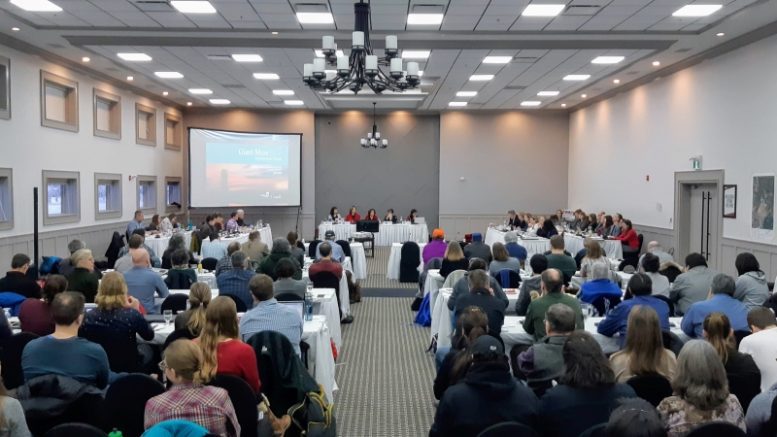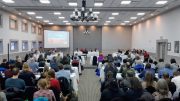The Giant Mine Oversight Board (GMOB) has released its 2019 annual report.
According to a news release, “The report is required pursuant to the Giant Mine Remediation Project Environmental Agreement, to summarize the activities of the Board over the past year and present its observations and recommendations regarding the Giant Mine Remediation Project.”
“While reporting on the activities of the Board, the report also includes four new recommendations while also providing an update and reporting progress on past recommendations. These recommendations are made to improve the direction of the Giant Mine remediation project while securing benefits for the local communities,” Chair of the Giant Mine Oversight Board Dr. Kathleen Racher said.
According to the report GMOB heard a variety of issues and concerns from residents and community groups during 2019.
Here is a list of some of those concerns from 2019 report:
- Recreational and commercial boaters were concerned about the lack of public communication on plans to close the Giant Mine boat launch and on alternative temporary launch sites.
- The Great Slave Sailing Club and the Yellowknife Historical Society raised concerns about the status of their City leases. They also wanted information about the schedule and details of the remediation plans that would affect their facilities and operations.
- Members of the local business community raised concerns with GMOB Board members about the length of time the Main Contract Manager (Parsons) has taken to make decisions and about delays in paying contractor invoices.
- The public raised concerns about the stability of the underground arsenic chambers and the quantity and quality of the mine’s sub-surface water.
- Onsite contract workers were concerned with the lack of clear information about arsenic testing protocols for onsite and contract workers.
- Members of the public suggested that a permanent occupational hygienist be onsite to oversee worker safety.
- GMOB has noted concerns raised by the Parties that the current socioeconomic planning for the Project has been limited in its scope, despite our previous recommendations. The Parties’ concerns are that the direct social impacts on community infrastructure, services, health and well-being must be addressed with equal weight as economic impacts/opportunities.
- GMOB has heard concerns that socio-economic planning for the Project has been both slow and of questionable efficiency. We have heard the concern that without a comprehensive socio-economic plan in place before the project launches its full remediation operations, it will be challenging to measure current and long-term socio-economic community impacts and benefits.
The report includes four new recommendations by the GMOB for the Giant Mine Remediation Project:
- Appoint a special envoy to lead the socio-economic aspects of the project.
- Give each Party the needed resources.
- Increase City involvement.
- Reconciliation and legacy issues. GMOB recommends that the Federal Government immediately resolve the repeated requests from YKDFN for an apology and compensation for the historic operations at the Giant Mine.
“These recommendations are made to improve the direction of the Giant Mine remediation project while securing benefits for the local communities,” Dr. Racher said.
The 2019 Annual Report is available online at https://gmob.ca/wp-content/uploads/2020/05/GMOB-Annual-Report-2019.pdf
For more information about the GMOB visit www.gmob.ca






